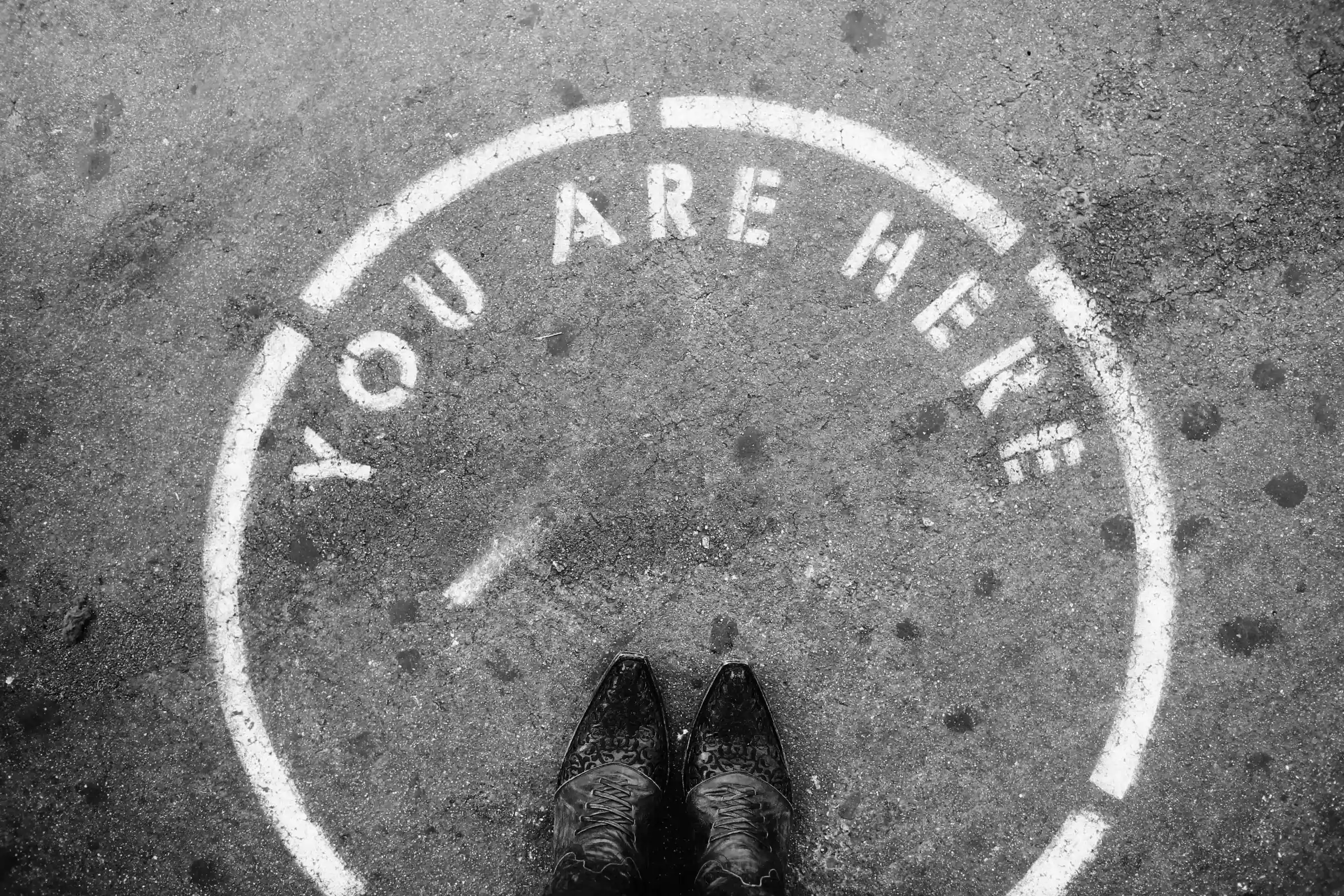Many companies around the world are expanding their remote workforce, whether it be in pursuit of lower overheads, higher productivity, a bigger market to hire from, or better work-life balance for employees.
At first mention, remote work may sound like all glory, with little downside. Although it has an incredible host of benefits, it’s not without its pitfalls—especially if you’re not prepared for it. In my opinion, it truly is a double-edged sword.
Previous generations working in more traditional careers found that their hours and workplaces were pretty clearly defined. Remote work blurs the lines between life and work, and most remote workers I know are almost always plugged in.
Where your team, co-workers, and manager were previously within physical arm's reach, for many remote teams, they are now only within digital reach. Additionally, they may be living in a different state, or even a different continent, often hours (or even days!) behind or ahead of you.
Blurring the lines between home and work, while removing the support system a physical office provides, can make the transition to remote life unexpectedly difficult, isolating, and demanding.
What follows is a series of tips I've developed after working remotely for Designlab for the past 18 months, during 12 of which I've been nomading around the world. I hope you find them helpful as you embark on your own journey with working remotely!
1. Shift to a results-driven, not time-driven, mindset 🚴♂️
First and foremost, as a remote employee you can usually let go of the idea of a 9-to-5 job. This doesn’t apply to all roles: for example, a support role might require you to be online during certain business hours, but by and large this applies to most remote positions in the fields of marketing, sales, business development, UX/UI design, etc.
With the global shift towards increased remote working, companies are recognizing the value of employees working to a schedule and pattern that individually suits them. The culturally-ingrained assumption that a working day must be 8 hours long is being fundamentally challenged by this model, and it can be tremendously empowering.
In a remote environment, work is much more about producing results than punching in and out. You likely have daily work to do and projects with deadlines, and as long as you get them done, it doesn’t really matter whether or not it was in the 9-5 timeframe.
Shifting to a results-driven mentality allows you to do your best work, while respecting both your personal and professional life. This is not an easy thing to do, as you’ll likely have to unmoor some seriously deep-rooted habits. But once you connect with a results-driven mindset, the world truly becomes your oyster.

2. Stop multitasking, and drop into deep focus 🙇♂️
Let's get this one out of the way: multitasking is a lie. Studies have shown time and time again how inefficient it is: it’s even associated with a drop in effective IQ. It’s clear we should not be switching between tasks.
So leave behind the multitasking in favor of a new movement gaining steam in the workplace: deep focus. This is a growing work-philosophy for both remote and non-remote workers alike. In a world that inundates us with notifications from the moment we wake up to the moment we go to bed, it can be harder and harder to focus on the work that really matters.
Lucia Ziyuan, a UX Academy alumna and experienced remote worker shares her thoughts:
I felt strongly that as a creative worker, the freedom to block out all noises and distractions a few hours at a time—from notifications, emails, phone calls and in-person interruptions—is required for producing original, thoughtful work. Something magical happens when you can forget about how much time you've spent on drilling down to the bottom of a problem and get into the zone of deep thinking and problem-solving.
This becomes especially evident in a remote environment, where Slack is the greatest culprit of them all. When you step into this deep focus zone, turn your Slack settings to “do not disturb” (or just close the app altogether).
On the flip side, you don’t want to be in “do not disturb” mode at all times, both with co-workers and IRL friends. Lucia explains:
The isolation of remote work can get out of hand when you’ve spent extended periods of time working by yourself. So another thing I’d advocate is to proactively seek out opportunities to interact with others in ‘real’ life outside of work.
I think it's safe to say: focus on your work, but don’t forget to collaborate with others, and get outside.
3. Meet your new work BFF: project management tools 🗃
Now that you’re remote, no one’s physically looking over your shoulder or watching your every move. Luckily, your project managers are not omniscient, and don’t know everything that’s going on with you (even in the most connected of teams). But unluckily, this means you are required to project manage yourself most of the time.
Being a remote employee requires you to get more organized. Considering that your team and all of its knowledge is decentralized, the best way to keep track of this? Managing it all inside of a task/project manager. (At Designlab, we use Asana.)
You need to be able to show people exactly what you're doing, when you're doing it, and where it falls into the context of different teams. This will allow for a couple of important things:
- You will understand your own bandwidth
- You can hold yourself accountable to deadlines
- You can be honest with yourself and others
- Your manager, and other teams, understand your capacity
- Everyone can properly roadmap your work and coming projects, because they’re aware of what’s on your plate
- You can keep track of everything you’re working on (and want to work on)
Centralizing deadlines and workload to increase transparency across the company is key to making a realistic roadmap that helps everyone succeed when working remotely.

4. Learn to say no 🙅♀️
Remote life is a tremendous privilege: you can run errands, clean the house, go to a doctor’s appointment, take care of your dog, help your neighbor keep an eye out for their Amazon packages that keep getting stolen, and finish all of your work, all in one day.
But don’t let this fool you. That would be a hell of a long day, and you’d probably end up working late into the night.
This is not to say you can’t do all that if you want to, but don’t let your life run rampant with these mini-tasks that constantly pull you away from your work and never allow for that deep-focus time.
Kieran Black, a current UX Academy mentor, speaks to this:
I think the main thing is realizing how much built-in structure there is with an office. Then trying to understand that and be disciplined and have your own structure, design it, if you will. As much as remote work is amazing, you have to say no to a lot of things to make sure that structure and flow isn’t broken. Driving people places, picking things up for people, baby/dog-sitting, essentially just dropping everything to do something else.
Being comfortable saying “no” to these different things is critical—especially when you find others impinging on your newfound free time (looking at you, neighbor, aunt, and sister).
Kieran shares this wonderful clip from Portlandia that really gets the point across.

5. Find and do the things you love outside of work 🏂
Finally, with your newfound freedom in time and space, it’s so important to take advantage of it.
Work aside, having other outlets in your personal life that provide fulfilling, challenging, and engaging experiences are key to leading a happy life.
This is different for everyone. For some it may be voracious reading at different spots around your cute town; others may be triathletes who rip up the cycle, track, and pool every other day; others may be raising families and doing fun activities together.
Personally, I’ve been chasing winter around the world for the last 5 months. My newly discovered passion is snowboarding, and it’s taken me to the Andes in Chile, Patagonia in Argentina, and the Niseko region in Hokkaido, Japan.
The autonomy afforded to you by remote work empowers you to seize the most exciting opportunities in your personal life. And the pleasure you derive from that will likely make you feel so good, that you’ll return to work with a clearer head and more energy.
This positive feedback loop is one of my favorite things about remote life. My work allows me a better, more fulfilling personal life, which in turn makes me a better, more excited worker.
More than anything, the world of remote work allows for so many opportunities that the traditional workplace does not. This doesn’t mean it’s for everyone, but if it seems like it might be for you, I can almost guarantee it will provide a deeply fulfilling professional and personal life, something that might previously have seemed unattainable.
Illustrations by Patrick Multani
With thanks to Lucia Ziyuan and Kieran Black



.svg)










.webp)



